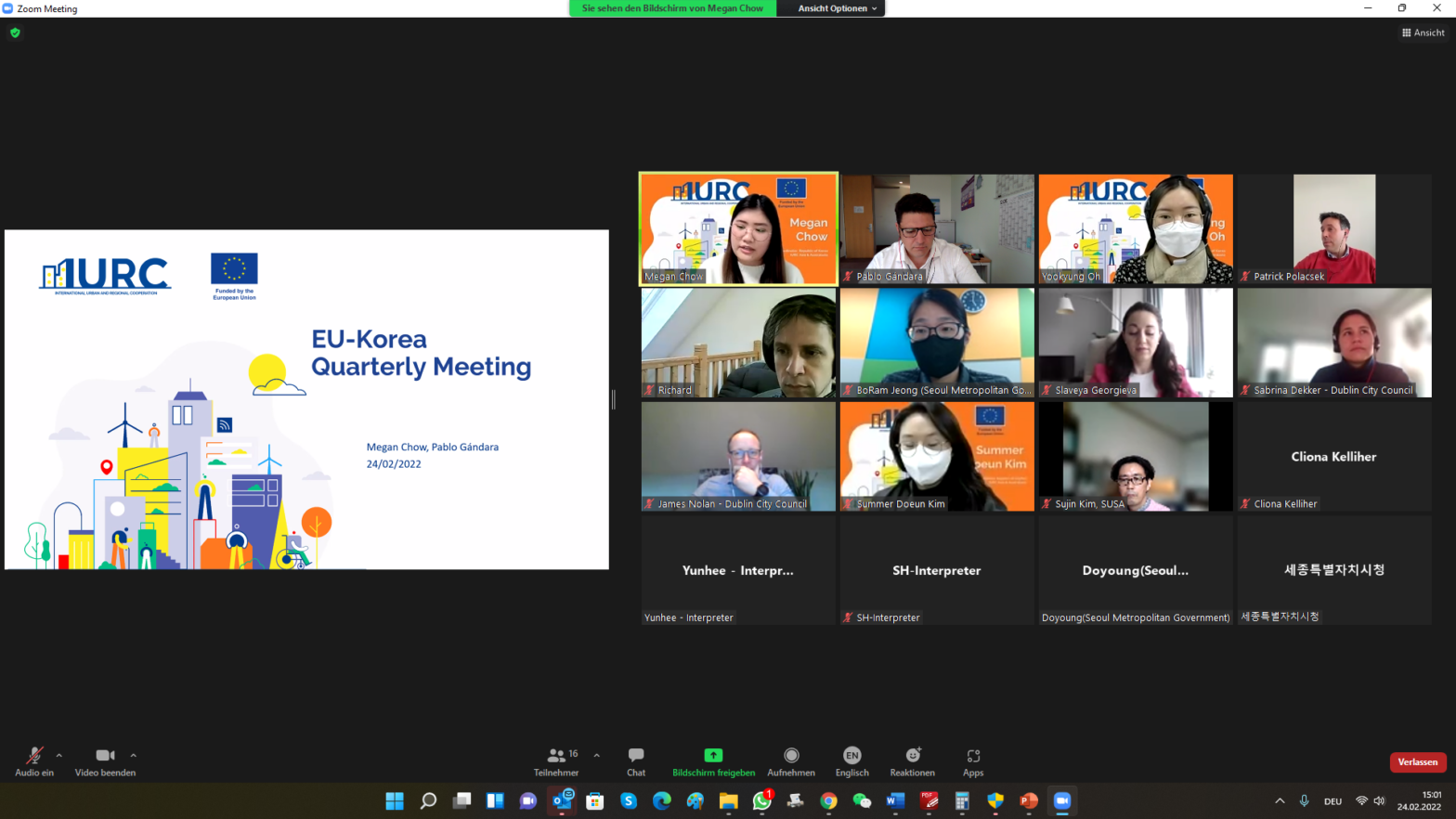The IURC Quarterly Meeting brought together both EU and Korean cities. The event was also joined by the Delegation of the European Union to the Republic of Korea (EUD) while CityNet delegates shared the overall progress in IURC so far.
The meeting started with a warm welcome from Mr. Patrick Polacsek of the EUD. Ms. Megan Chow, from the IURC Korea team, shared the general overview of progress and study visit preparation and timelines, while Mr. Pablo Gándara (IURC Team Leader) took the time to introduce the Urban Cooperation Action Plan (UCAP), a document that will serve to capture tangible outcomes from the city pairings. He finished by discussing potential synergies with other EU programmes, like the ICP-AGIR project.
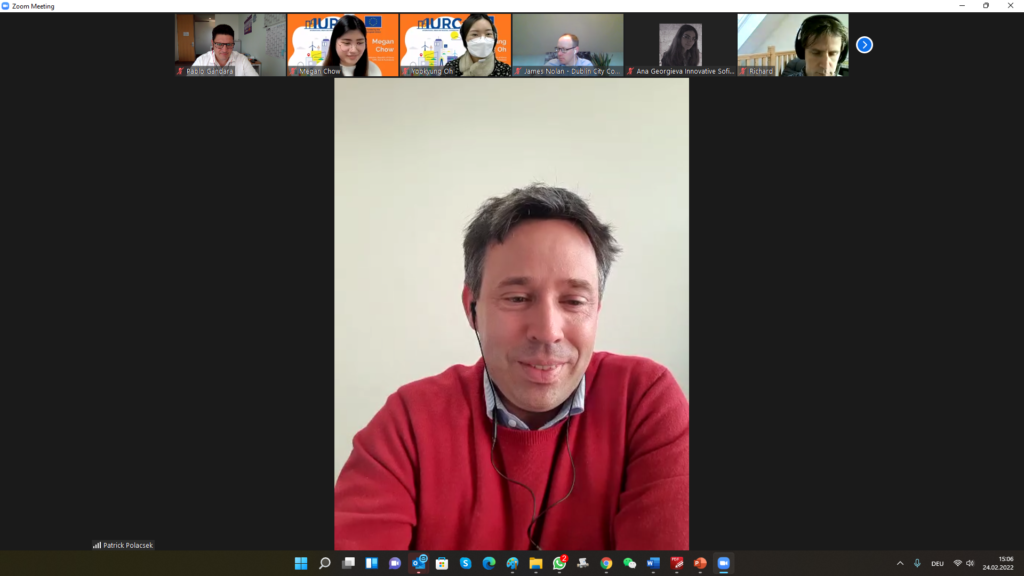
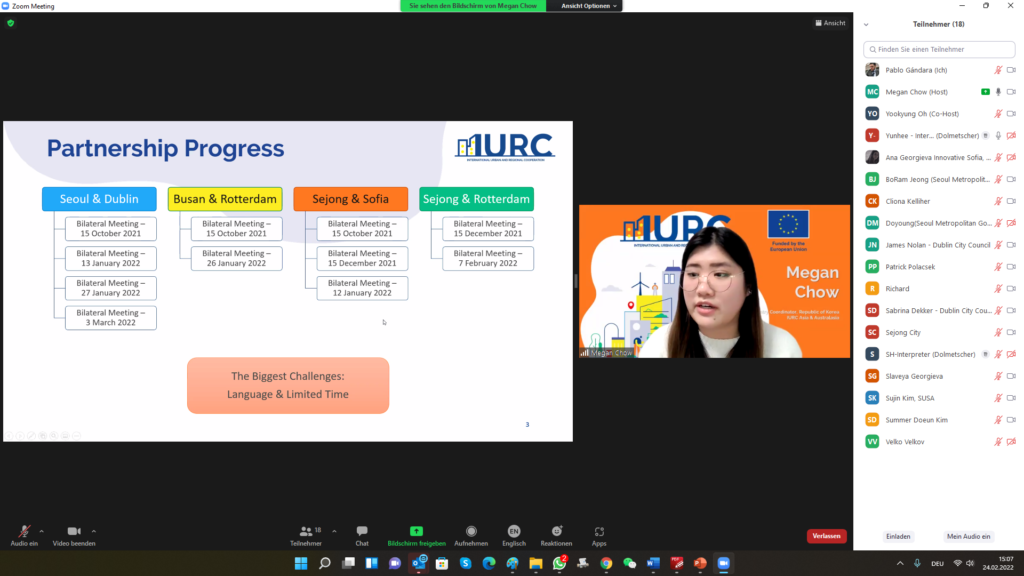
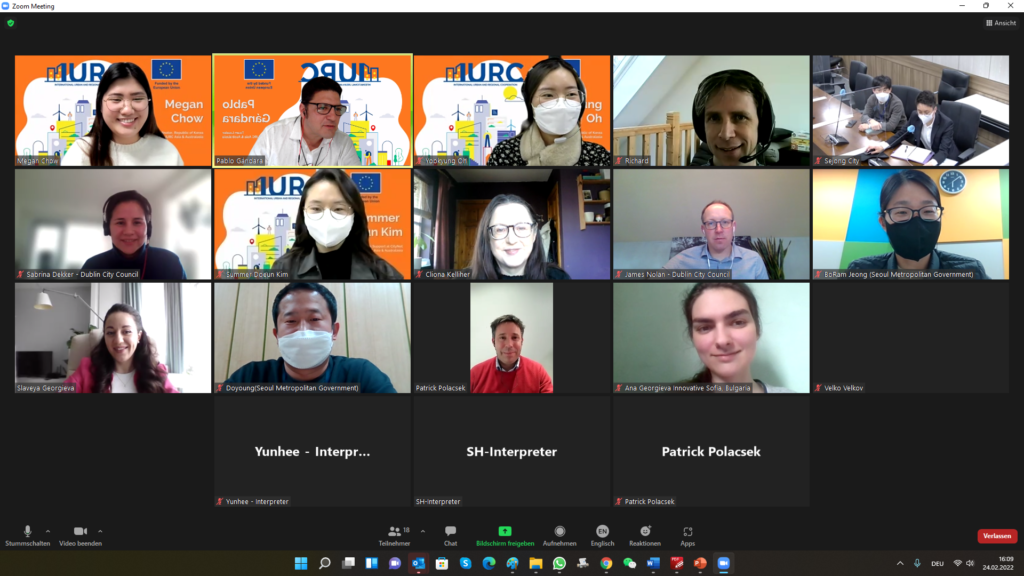
Sofia and Sejong, who have mainly been focusing on Micro-Mobility and MaaS, presented the current interests of cities and future topics of collaboration, which include Smart Utilities and Renewable Energy.


Following Sejong and Sofia’s presentation, Rotterdam and Busan shared the bilateral meeting progress that will continue to work on Shared Mobility and Smart Mobility in the Port, Airport, and City locations.


Lastly, Seoul and Dublin shared their cooperation progress. Currently, both cities are focusing on the implementation of Walking and Bicycling, as well as knowledge on how to engage citizen’s cooperation. Both cities are learning from each other’s experiences on robust discussion on both positive results on implementation and project outcome feedbacks. To conclude the updates, Seoul presented the course of the study visit plan which to walk on city’s pedestrian priority implementation to reflect Seoul and Dublin’s discussion topics.

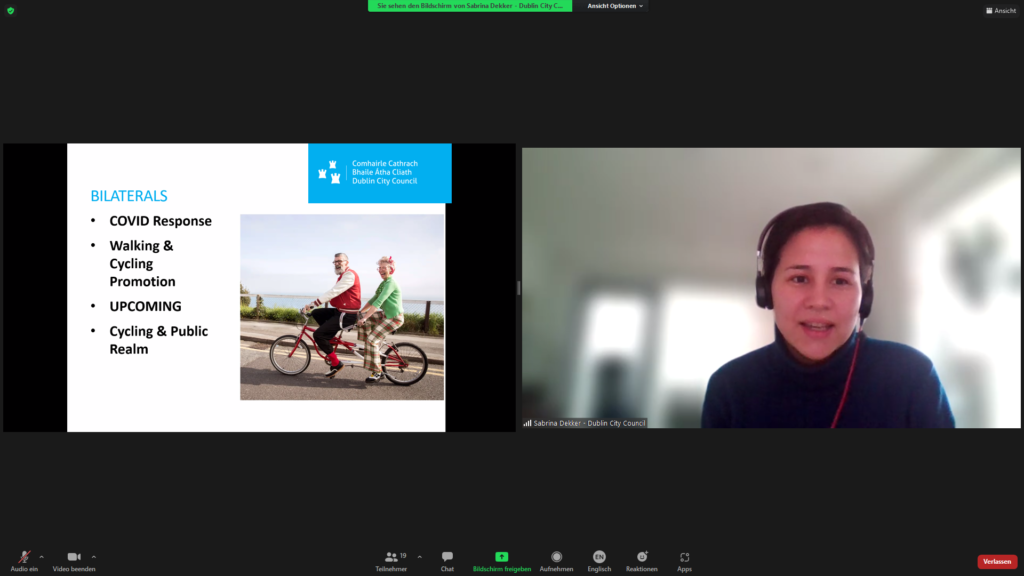
Outside of the original paring, Sejong is currently working with Rotterdam through cross-pairing network and expanding its global partnerships. And more cities within this group of pairings are expecting to exchange more knowledge and expand partnerships with cities.
Amongst the city presentation and discussion, the COVID-19 situation was chosen universally as a potential issue on fast-approaching study visits. Despite the situation, the partnership and cooperation between the cities will continue throughout both upcoming bilateral meetings and each study visits.
